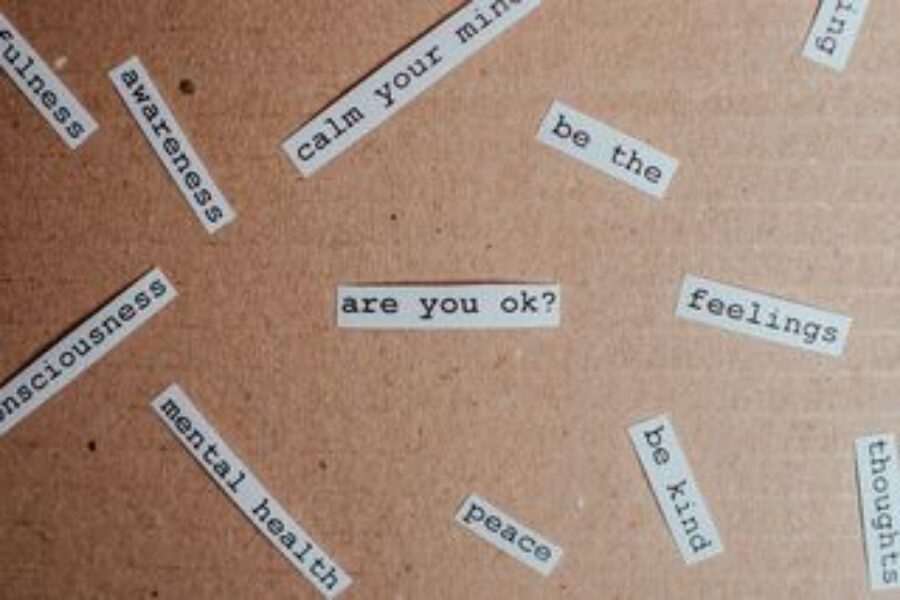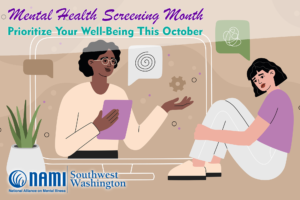One of the most important things I try to impress upon clinicians in training is to learn which questions patients can easily answer and which ones are difficult. For example, when you ask someone about a symptom they know very little about, like a symptom of psychosis or mania, they may not be sure what to say, even if they have it.
On the other hand, there are questions that everyone knows the answer to. These are invaluable in helping to understand a person’s experience. There are two sets of such questions that should be used whenever possible. The first is universally relevant and extremely important at the beginning, during, and at the end of treatment. Despite this, it is rarely seen anywhere in patient records.
The question applies to any disorder, and everyone immediately knows the answer: “Do you feel like yourself?” After working hard trying to figure out what may be wrong, or if the treatment has had a positive effect, I have asked this countless times. In each instance, both the patient and I knew where things stood.
If the answer is “no,” the follow-up question makes it easy for a patient to focus on what is bothering them. After a “no” answer, the follow-up question is, “If you are not fully yourself, what is missing that would get you back to feeling fully like you.” Because the person’s mindset has already been focused on the universal feeling of being oneself, it becomes easy to say why they are or are not fully at their usual baseline. Things like “I am still very tired,” “I still feel blue very often,” or “I feel better but still have no sex drive,” come immediately to the patient’s mind.
This is, in my view, the most important symptom in the mental health world. It is really the basis for what we do. We aren’t looking for something physically abnormal or out of range on a blood test. Even if we have such tests someday, the most important starting point would still be how a person feels inside. Only their mind has access to this. Not feeling like themselves is their initial warning sign that something is wrong.
Feeling like yourself is like having a jacket that fits perfectly. Only you can tell that every inch of that jacket conforms to your body, and you know as soon as you put it on. Feeling like yourself is similar in that every inch of internal being feels just right and normal.
Importantly, being yourself does not mean feeling good. You may be feeling sad about something and still feel like yourself. People know this. Patients have even told me, “I still feel down because of my mother passing, but I am back to myself.” In fact, in rare cases, people who have been depressed all their lives have said that even though they have never felt this way before, they now feel like themselves.
This is all testament to the normalizing effects of mental health treatment. We do not have “happy pills” nor do we make people happy when they should be sad. We help them return to normal, whatever that is for them.
When a person has had therapy or medicine treatment there is often a discussion of just how much better the individual feels. Are they all way better or only partially? This can be hard to know for the clinician as well as for the patient. Once again, “Are you yourself?” can break through the ice. If the person is not all the way better the answer will be “no,” which is the clinician’s cue to ask, “In what way are you not yourself yet?” or “What is missing to get you back to your full self?” Once the person’s mind is primed with thinking about selfhood (or feeling if the jacket fits), they will know what is missing.
I’d like to add a final group of questions that help when the patient and clinician are trying to decide if the treatment made the person merely better or fully well. In many cases, a person will be so relieved to not feel as bad as they did initially that they will say—in complete honesty— “I feel good!” We want people to return to their full selves in order to live their lives as fully as they choose, but there is another reason to look for “well,” and not merely “better.”
When people are fully remitted, they are more stable and less likely to have a recurrence of their disorder than if they are only partially better. For that reason, I ask the following questions: “Do you have the capacity for interest, fun, and relaxation?” Unlike our first question, this needs some explanation. First, in practice, I slowly review each item. Each element is exactly as it sounds, there is no need to dig deeper. But people do need a moment to reflect. Second, and very importantly, I explain “capacity.” What I am stressing here is that this is something you may have the ability to do, rather than something you are necessarily doing right now. Perhaps with a job and kids, you do not have opportunities for such things right now. But if you did, could you? As with our first question, people will know themselves and know the answer to this.
Don’t be discouraged, whether you are a clinician or a patient, if the answer to this is “no.” I have set a high bar based on my own definition of mental well-being. In our modern world, this may be a difficult goal for many people, for reasons beyond what you came into treatment for. But it is something very important to know about yourself. The answer may point to ways to adjust your life to become the person you aspire to be.
These questions are useful not only because everyone knows the answer, but because they get to the essence of who we are and how we feel. If your clinician does not ask, tell them the answers anyway.
Source: https://www.psychologytoday.com/us/blog/modern-world-modern-mind/202201/the-2-most-important-questions-in-psychology-no-one-asks




